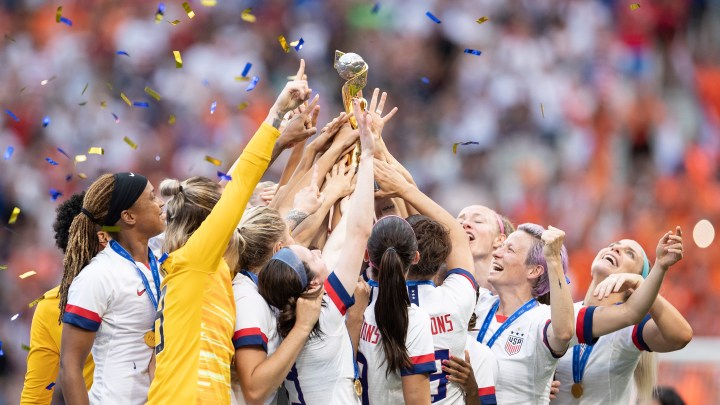
FIFA says broadcasters lowballed bids for the Women’s World Cup
FIFA says broadcasters lowballed bids for the Women’s World Cup

The world of women’s international soccer is about to take a big step toward next summer’s Women’s World Cup in Australia and New Zealand: On Saturday, we’ll learn the draw for the tournament — which teams will play each other in the first stage.
The popularity of women’s soccer is booming. This year’s European championship, for instance, drew around 365 million viewers around the world — more than twice as many as watched the 2017 edition.
But broadcasters are lowballing their bids for the right to air the games, according to the World Cup’s organizing body, FIFA. The federation told broadcasters this week that they’re going to have to increase the offers they’ve been making.
FIFA asking broadcasters to pay more money for anything shouldn’t surprise anyone, said Tom Bassam, a news editor at London-based sports media company SportsPro. But this time feels different, he said.
“In this case, it feels a little bit like they’re just trying to tell the market that now’s the time that you’ve got to start paying for this stuff,” Bassam said.
Fox has already paid for the broadcasting rights here in the U.S., but when it comes to TV rights in Italy, Germany, France, the U.K. and maybe even Spain, FIFA has rejected networks’ initial offers and told them to increase their bids.
“I’ve really seen a shift in how FIFA perceives the women’s game,” said Natalie Smith, an associate professor of sport management at East Tennessee State University. “And I think that has then shifted how they interact with outside entities.”
It’s now time for these outside entities (in this case, the broadcasters) to stop making excuses, she added. “They always think the last tournament was a one-off like, ‘Oh, well, last time it was in France. So of course, the number is gonna be higher. So we’re gonna lowball you.’”
The popularity of the women’s game just doesn’t seem to have sunk in for broadcasters, Smith said.
And there’s a chance some network executives may still be thinking that the women’s game “just isn’t as interesting, women’s sports are not as interesting as men’s sports, they’re not the same kind of athlete, they don’t draw the same crowds,’” said Michelle Janning, a sociology professor at Whitman College in Washington state. “And so pointing to those kinds of things, as economic reasons, might be [a] justification in their minds.”
Societal changes take a long time to happen, Janning said, and even longer for conservative institutions like TV networks to recognize. But FIFA pushing back on the value of the women’s game could be a pivotal moment.
Clarification (Oct. 24, 2022): This story has been amended to clarify that Michelle Janning’s comment is hypothetical.
There’s a lot happening in the world. Through it all, Marketplace is here for you.
You rely on Marketplace to break down the world’s events and tell you how it affects you in a fact-based, approachable way. We rely on your financial support to keep making that possible.
Your donation today powers the independent journalism that you rely on. For just $5/month, you can help sustain Marketplace so we can keep reporting on the things that matter to you.

















